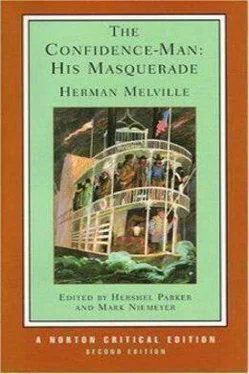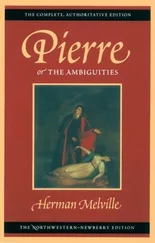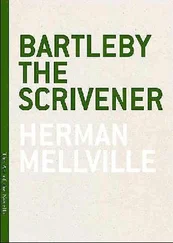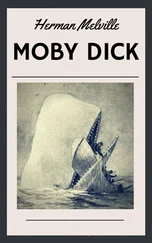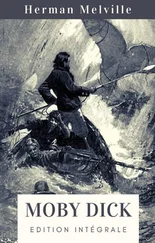"Upon China Aster's stating his case, his trusted friend was silent for a time; then, in an odd way, said that he would not crowd China Aster, but still his (Orchis') necessities were urgent. Could not China Aster mortgage the candlery? He was honest, and must have moneyed friends; and could he not press his sales of candles? Could not the market be forced a little in that particular? The profits on candles must be very great. Seeing, now, that Orchis had the notion that the candle–making business was a very profitable one, and knowing sorely enough what an error was here, China Aster tried to undeceive him. But he could not drive the truth into Orchis—Orchis being very obtuse here, and, at the same time, strange to say, very melancholy. Finally, Orchis glanced off from so unpleasing a subject into the most unexpected reflections, taken from a religious point of view, upon the unstableness and deceitfulness of the human heart. But having, as he thought, experienced something of that sort of thing, China Aster did not take exception to his friend's observations, but still refrained from so doing, almost as much for the sake of sympathetic sociality as anything else. Presently, Orchis, without much ceremony, rose, and saying he must write a letter to his wife, bade his friend good–bye, but without warmly shaking him by the hand as of old.
"In much concern at the change, China Aster made earnest inquiries in suitable quarters, as to what things, as yet unheard of, had befallen Orchis, to bring about such a revolution; and learned at last that, besides traveling, and getting married, and joining the sect of Come–Outers, Orchis had somehow got a bad dyspepsia, and lost considerable property through a breach of trust on the part of a factor in New York. Telling these things to Old Plain Talk, that man of some knowledge of the world shook his old head, and told China Aster that, though he hoped it might prove otherwise, yet it seemed to him that all he had communicated about Orchis worked together for bad omens as to his future forbearance—especially, he added with a grim sort of smile, in view of his joining the sect of Come–Outers; for, if some men knew what was their inmost natures, instead of coming out with it, they would try their best to keep it in, which, indeed, was the way with the prudent sort. In all which sour notions Old Prudence, as usual, chimed in.
"When interest–day came again, China Aster, by the utmost exertions, could only pay Orchis' agent a small part of what was due, and a part of that was made up by his children's gift money (bright tenpenny pieces and new quarters, kept in their little money–boxes), and pawning his best clothes, with those of his wife and children, so that all were subjected to the hardship of staying away from church. And the old usurer, too, now beginning to be obstreperous, China Aster paid him his interest and some other pressing debts with money got by, at last, mortgaging the candlery.
"When next interest–day came round for Orchis, not a penny could be raised. With much grief of heart, China Aster so informed Orchis' agent. Meantime, the note to the old usurer fell due, and nothing from China Aster was ready to meet it; yet, as heaven sends its rain on the just and unjust alike, by a coincidence not unfavorable to the old farmer, the well–to–do uncle, the tanner, having died, the usurer entered upon possession of such part of his property left by will to the wife of China Aster. When still the next interest–day for Orchis came round, it found China Aster worse off than ever; for, besides his other troubles, he was now weak with sickness. Feebly dragging himself to Orchis' agent, he met him in the street, told him just how it was; upon which the agent, with a grave enough face, said that he had instructions from his employer not to crowd him about the interest at present, but to say to him that about the time the note would mature, Orchis would have heavy liabilities to meet, and therefore the note must at that time be certainly paid, and, of course, the back interest with it; and not only so, but, as Orchis had had to allow the interest for good part of the time, he hoped that, for the back interest, China Aster would, in reciprocation, have no objections to allowing interest on the interest annually. To be sure, this was not the law; but, between friends who accommodate each other, it was the custom.
"Just then, Old Plain Talk with Old Prudence turned the corner, coming plump upon China Aster as the agent left him; and whether it was a sun–stroke, or whether they accidentally ran against him, or whether it was his being so weak, or whether it was everything together, or how it was exactly, there is no telling, but poor China Aster fell to the earth, and, striking his head sharply, was picked up senseless. It was a day in July; such a light and heat as only the midsummer banks of the inland Ohio know. China Aster was taken home on a door; lingered a few days with a wandering mind, and kept wandering on, till at last, at dead of night, when nobody was aware, his spirit wandered away into the other world.
"Old Plain Talk and Old Prudence, neither of whom ever omitted attending any funeral, which, indeed, was their chief exercise—these two were among the sincerest mourners who followed the remains of the son of their ancient friend to the grave.
"It is needless to tell of the executions that followed; how that the candlery was sold by the mortgagee; how Orchis never got a penny for his loan; and how, in the case of the poor widow, chastisement was tempered with mercy; for, though she was left penniless, she was not left childless. Yet, unmindful of the alleviation, a spirit of complaint, at what she impatiently called the bitterness of her lot and the hardness of the world, so preyed upon her, as ere long to hurry her from the obscurity of indigence to the deeper shades of the tomb.
"But though the straits in which China Aster had left his family had, besides apparently dimming the world's regard, likewise seemed to dim its sense of the probity of its deceased head, and though this, as some thought, did not speak well for the world, yet it happened in this case, as in others, that, though the world may for a time seem insensible to that merit which lies under a cloud, yet, sooner or later, it always renders honor where honor is due; for, upon the death of the widow, the freemen of Marietta, as a tribute of respect for China Aster, and an expression of their conviction of his high moral worth, passed a resolution, that, until they attained maturity, his children should be considered the town's guests. No mere verbal compliment, like those of some public bodies; for, on the same day, the orphans were officially installed in that hospitable edifice where their worthy grandfather, the town's guest before them, had breathed his last breath.
"But sometimes honor maybe paid to the memory of an honest man, and still his mound remain without a monument. Not so, however, with the candle–maker. At an early day, Plain Talk had procured a plain stone, and was digesting in his mind what pithy word or two to place upon it, when there was discovered, in China Aster's otherwise empty wallet, an epitaph, written, probably, in one of those disconsolate hours, attended with more or less mental aberration, perhaps, so frequent with him for some months prior to his end. A memorandum on the back expressed the wish that it might be placed over his grave. Though with the sentiment of the epitaph Plain Talk did not disagree, he himself being at times of a hypochondriac turn—at least, so many said—yet the language struck him as too much drawn out; so, after consultation with Old Prudence, he decided upon making use of the epitaph, yet not without verbal retrenchments. And though, when these were made, the thing still appeared wordy to him, nevertheless, thinking that, since a dead man was to be spoken about, it was but just to let him speak for himself, especially when he spoke sincerely, and when, by so doing, the more salutary lesson would be given, he had the retrenched inscription chiseled as follows upon the stone.
Читать дальше
